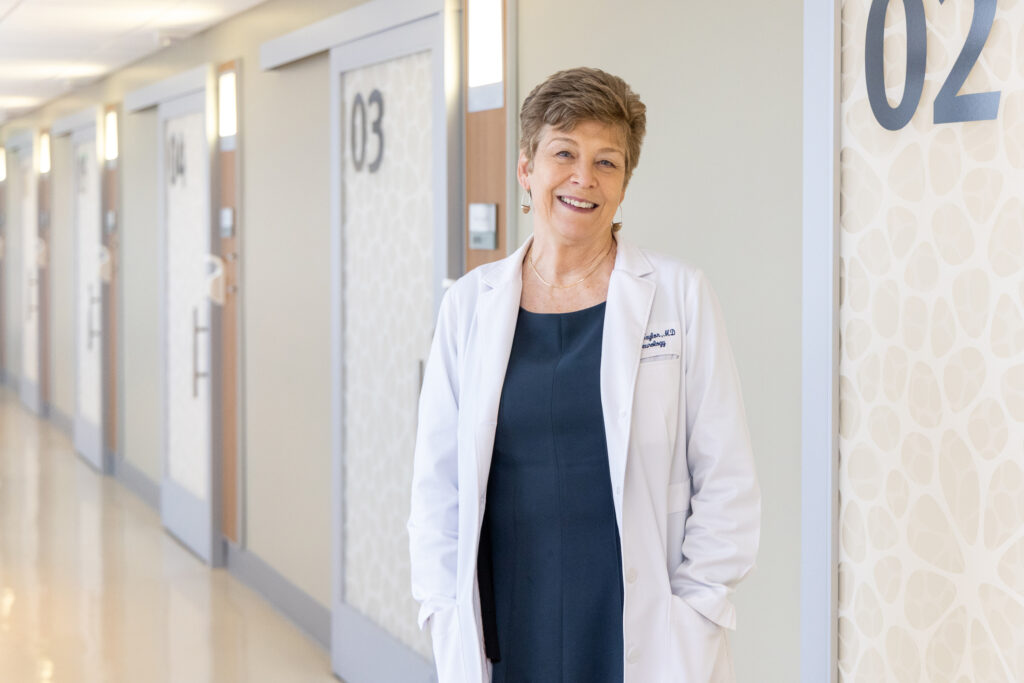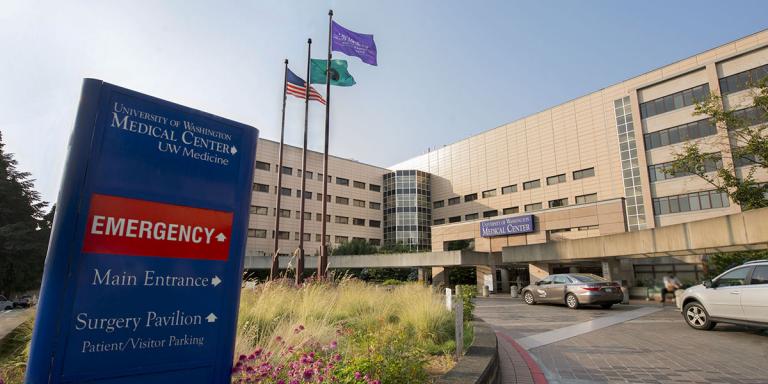April 25, 2024
Comprehensive, Research-driven Brain Tumor Care Supported by Neuropsychologists, Social Workers and Cancer Nutritionists

For the past 20 years, UW Medicine has been a leader in brain tumor care. Our faculty members provide advanced therapies to treat more than 100 kinds of brain tumors. Today, our leadership extends further as we are involved in multiple research efforts to improve the comfort level and extend survival for many patients.
“Patients with brain tumors have very special needs. Their tumors can strike at the heart of who they are as people, producing symptoms that affect language, memory and motor or sensory functioning,” says Lynne P. Taylor, MD, FAAN, FANA, the neuro-oncology co-director at the Alvord Brain Tumor Center at University of Washington Medical Center – Montlake. “As neuro-oncologists, we are working with our colleagues nationally to develop clinical trials to try and improve quality of life and overall survival.”
Taking research to the next level
The brain tumor team is currently involved in three clinical investigations that could open the door to better therapies in the future.
- Vaccines: As part of immunotherapy research, our investigators participate in a randomized-controlled clinical trial to examine whether the therapeutic vaccine SurVaxM can lengthen survival for patients with glioblastoma. Participants will receive one of two treatments: an oral pill: temozolomide (standard of care chemotherapy) with SurVaxM in Montanide (a milky solution to encourage the patient’s immune response) or temozolomide and saline in Montanide (placebo).
“In this trial, we’re attempting to use immunotherapy to stimulate the patient’s immune system to shut down tumor growth using survivin, a molecule that plays a large role in tumor aggressiveness and resistance to therapy,” she says.
- Drug combination therapy: In the GBM AGILE (Glioblastoma Adaptive Global Innovative Learning Environment) clinical trial, our researchers work with international partners to test multiple drugs and drug combinations to effectively combat glioblastoma.
“By participating in the GBM AGILE trial, we are contributing to a trial model that promotes rapid testing of multiple drugs and screening drug combinations to, hopefully, get us closer to finding an active agent against glioblastoma.”
- Targeted brain tumor therapy: Through the INDIGO clinical trial, our investigators helped confirm that the drug vorasidenib successfully targets the common IDH mutation in lower-grade primary brain tumors in younger patients.
“This is the first example of a targeted therapy of this kind having activity against primary brain tumors,” she says. “These types of tumors primarily occur in patients between the ages 20 and 45, and we may one day be able to delay treating them with chemotherapy or radiation therapy for several years. This delay is extremely important for people during the years in which they are interested in starting families and who, naturally, want to avoid toxic therapies that may impact fertility.”
Slowing and preventing brain tumors

The team focuses on improving the quality of life for the patients they see in their clinical practices. Through collaborations, our neurological surgeons, radiation oncologist and neuro-oncologists provide medical management for a wide variety of brain tumors both at the Alvord Brain Tumor Center and Fred Hutchinson Cancer Center, an independent organization that serves as UW Medicine’s cancer program. Together, we provide access to the latest the latest research, treatment options and clinical trials.
“We are also very lucky to have the support of neuropsychologists, social workers, cancer nutritionists and nurses specialized in the care of brain tumor patients. We treat symptoms of nervous system problems from a neurological perspective, but we also use chemotherapy and immunotherapy from an oncologic perspective,” Taylor says. “Our goals are to prevent other tumors from forming and to slow down the growth of any tumors surgeons cannot completely remove.”
Neurofibromatosis Clinic
- We are an NF-certified clinic through the Children’s Tumor Network. In the Neurofibromatosis Clinic, our experts treat people who have the genetic disorders neurofibromatosis types 1 and 2 and schwannomatosis. These can produce skull base tumors which can cause deafness. Some patients with schwannomas and meningiomas also benefit from bevacizumab, a monoclonal antibody that targets vascular endothelial growth factor (VEGF) expressed in abnormal tumor blood vessels, shrinking the tumors and preventing further hearing loss.
Gamma Knife Center and Proton Center
- Our radiation oncologists and neurological surgeons work closely together to deliver stereotactic radiosurgery (Gamma Knife) to patients with metastatic brain tumors to prevent future tumor growth.
- Proton radiation therapy is used for younger patients with lower grade brain tumors to limit the exit dose and preserve cognitive function in the future.
A comprehensive approach
To ensure our patients consistently receive the highest level of care, Taylor says our team takes a comprehensive approach to disease management through the dedicated Neuro-oncology Tumor Board.
Every week, they gather as a multidisciplinary group to discuss patient cases and decide on courses of care. In addition to neuro-oncologists and neurological surgeons, this team includes radiation oncologists, medical oncologists, neuropathologists, neuroradiologists, nurses and social workers.
Ultimately, Taylor says, it’s these partnerships that make us a sought-after institution for high-quality neurological care for patients with cancer.